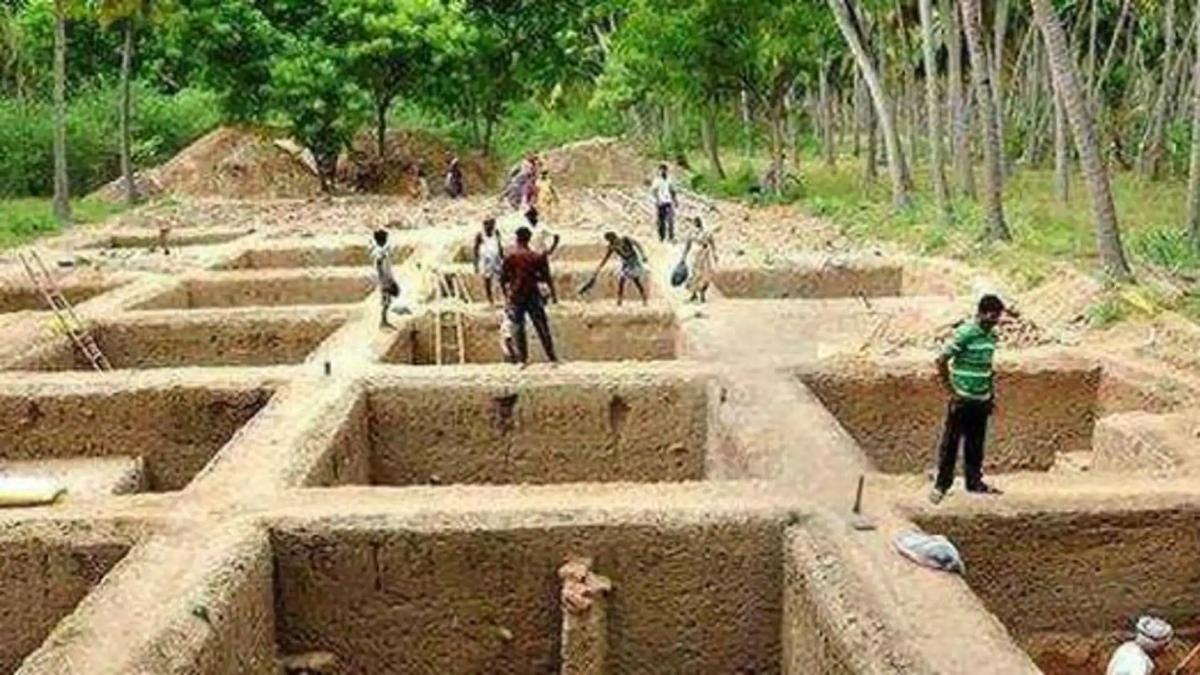Explained: The Keeladi row and the Centre-state battle over Tamil Nadu history

A day after Union minister of culture and tourism Gajendra Singh Shekhawat said the DMK government was refusing to cooperate with the central government on Keeladi research and politicising it, Chief Minister MK Stalin slammed the Centre for demanding “more proof.” He called it as an attempt to suppress data.
In a long post on X, Stalin said the BJP-RSS ecosystem recoils when it comes to the Keeladi and the enduring truth of Tamil heritage. “The Union government has continued its demand for more proof even after they were given carbon-dated artefacts and Accelerator Mass Spectrometry (AMS) reports from International Laboratories on the Keeladi excavations. When it comes to Keeladi and the enduring truth of Tamil heritage, the BJP-RSS ecosystem recoils — not because evidence is lacking, but because the truth does not serve their script. We fought for centuries to unearth our history. They fight every day to erase it. The world is watching. So is time.”
Stalin’s was a hard-hitting statement, saying Tamil Nadu will not give up its fight. On Thursday, the DMK’s student wing led by its secretary R Rajiv Gandhi announced that a major protest will be held against the BJP in Madurai on June 18. Condemning the BJP, he called it anti-Tamil for “refusing to accept the Keeladi archaeological findings despite it being established scientifically.”
The carbon dating of the artefacts unearthed from Keeladi has proved that urban civilisation existed in the ancient Tamil landscape. The carbon samples were dated back to 585 BCE (2,600 years ago). Paddy husks from a burial urn in Sivagalai, 150 kms from Madurai were found to be 3,200 years old, reaffirming the need for widespread archaeological excavations across Tamil Nadu.
Shekhawat’s statement and Stalin’s response to it combined with the DMK student wing calling for a protest has reignited the Keeladi row and the debate about India's early history and the dawn of civilisation in the subcontinent.
Unlike earlier archaeological excavations from various other sites, Keeladi has made a massive buy-in by the Tamils and added strength to the celebrated Tamil pride. The findings in Keeladi, the tiny hamlet located on the banks of Vaigai river, near Madurai in South Tamil Nadu, had actually opened a new chapter in understanding Tamil Nadu’s ancient history and culture. At times, it had also been a contentious issue between the state and the Centre, igniting the debates both in the political and academic circles.
It was only a few weeks before that the Archeological Survey of India (ASI) had asked, K. Amarnath Ramakrishna, the then Superintending Archaeologist of Archeological Survey of India (ASI), to resubmit his report after making necessary corrections for taking further action. Amarnathm who is the man behind the excavationm was deliberately transferred in 2017 by the central government to Assam. And Shekhawat’s statement actually added strength to the ASI asking Amarnath for clarifications two-and-a-half years later. It has only made it deliberate the political motivation only to say that south India did not have an urban civilisation and the only urban civilisation was the Harappan civilisation and a refusal to acknowledge the presence of an urban civilisation in Tamil Nadu that could rival the civilisation in the Gangetic plains.
India